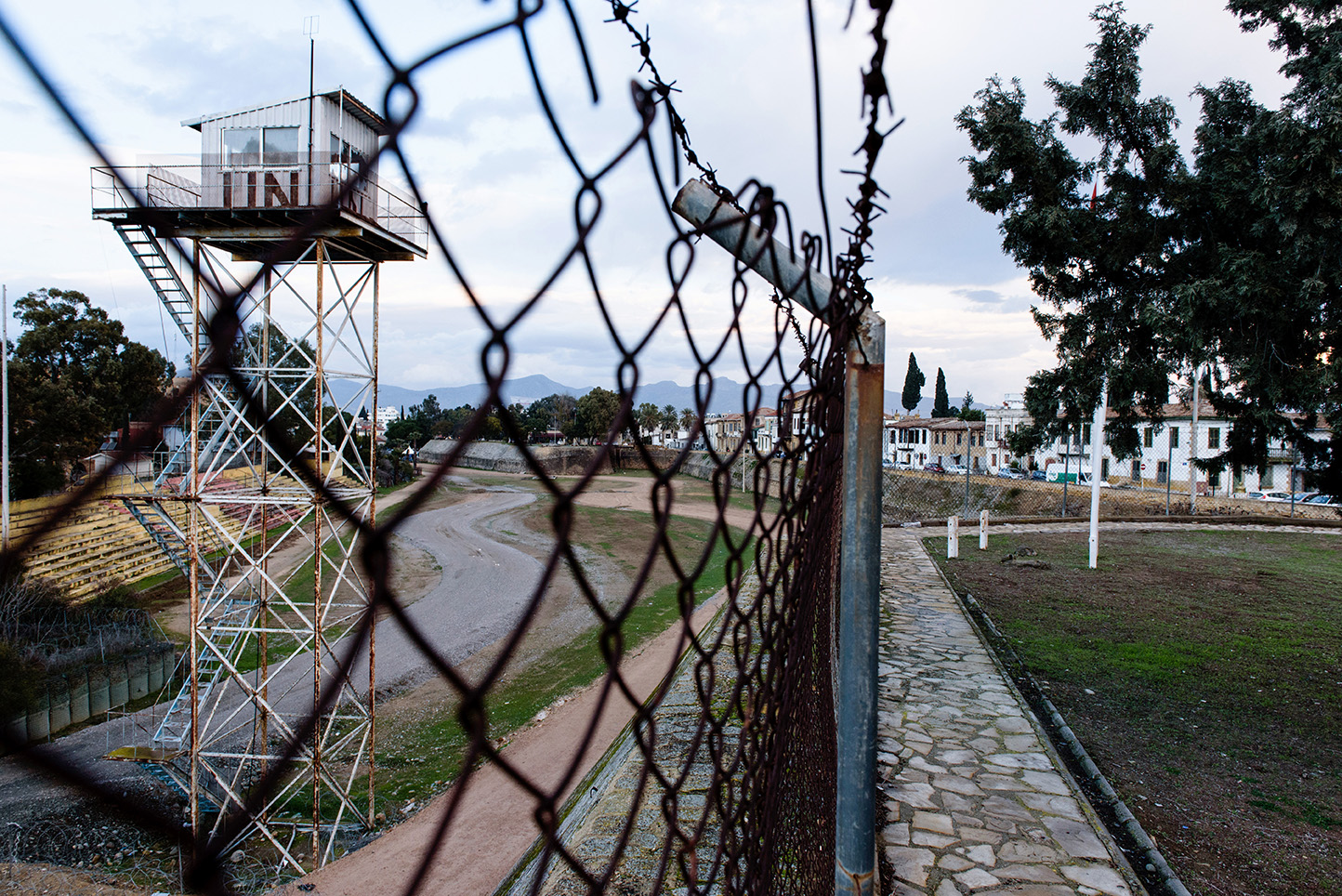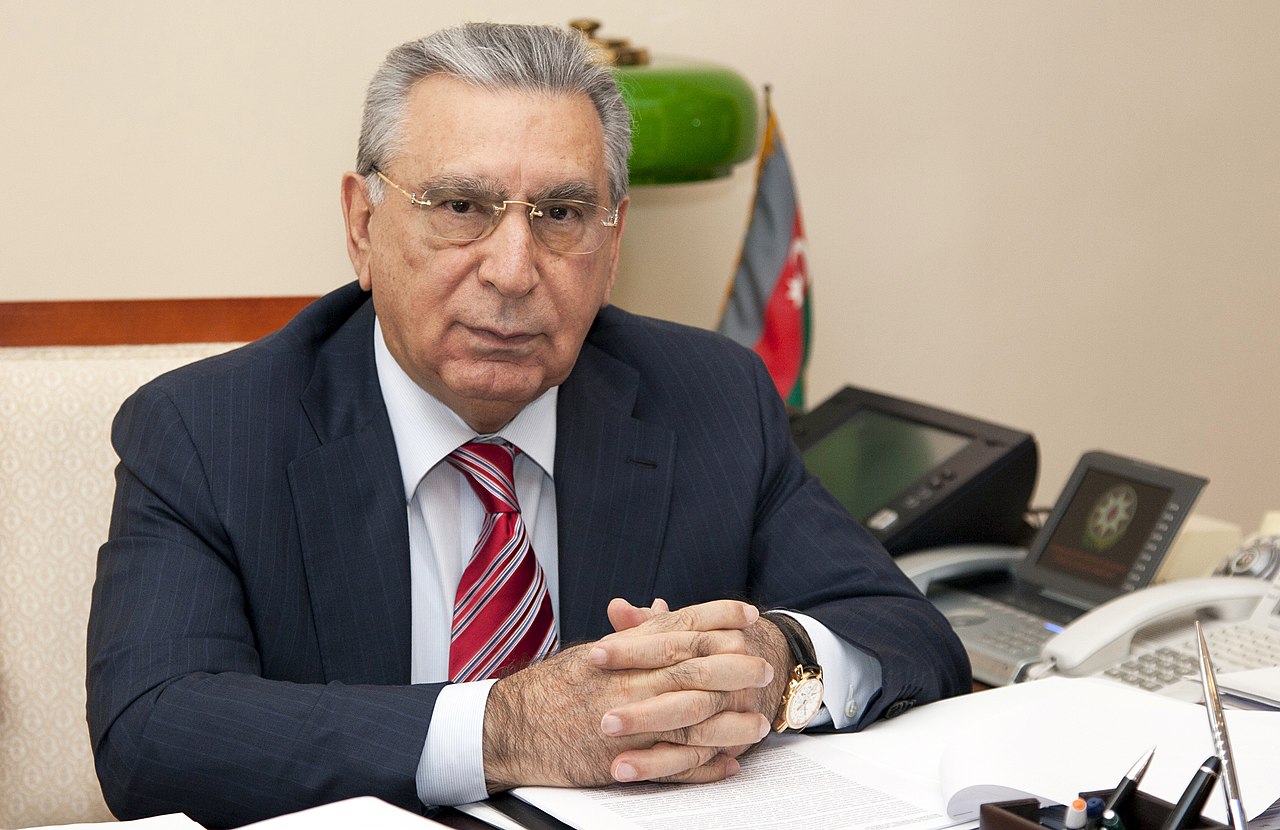Jailed journalists turn the spotlight on Azerbaijan’s prisons
Since November 2023, around thirty journalists have been arrested in Azerbaijan. From behind bars, these journalists have revealed the appalling conditions of the prison system, something previously impossible to do due to limited access to information

Azerbaijan-i-giornalisti-detenuti-rivelano-le-condizioni-delle-carceri-1
Prison - © Minuscrew blur/Shutterstock
Corruption and graft in Azerbaijani prisons were once nearly impossible for journalists to expose, as access to information was tightly restricted. That changed after the authorities jailed some 30 independent journalists beginning in November 2023. From behind bars, these reporters have revealed a steady stream of accounts from the penitentiary system. For a government so concerned with its image, the picture emerging from these stories is anything but flattering.
When labor rights activist Afiaddin Mammadov attempted to describe the conditions of the prison facility where he was held, the phone line was cut off. Numerous attempts later, when the family was able to connect with the activist again, the line was cut off abruptly as soon as Mammadov resumed speaking. From the little he was able to tell his family was the following: "There are mice in the kitchen, where food is stored, and they eat the food. It’s an unsanitary situation. There are also big rats in the sleeping area. There are a lot of people [in cells], and there are queues for hours at the toilet." The activist was sentenced to 8 years in prison in January 2025.
Journalist Ali Zeynal has detailed the internal racket system within the Investigative Detention Center’s medical facility, where access to medication has become another source of extortion. Inmates are forced to pay several times the market price to get their prescriptions. Drugs which normally cost AZN 25 (approximately EUR 12.5) outside, can cost up to AZN 70 (approximately EUR 35) in bribes inside.
Even cheap medicines are marked up, with payments adjusted according to a prisoner’s financial situation. Those with means can secure what they need without difficulty, but poorer inmates face long delays, endless bargaining, or being denied treatment altogether. In some cases, doctors only relent once a prisoner’s health has deteriorated to a critical point.
Zeynal recalls hearing from one of the doctors on duty at the prison facility who said the only thing he cared about was money, and if you did not have it, he did not want to waste his time on you. Zeynal was arrested in March 2024 as part of a broader investigation launched against media outlet Toplum TV on currency smuggling charges.
Another journalist, Polad Aslanov, reported how a prison doctor was allegedly involved in a scheme selling beds for AZN 200 (approximately EUR 100) at a prison ward. Or that items such as toothpaste, toothbrushes, clothes, hygiene products, and shoes for exercise — which are provided by the state — are instead sold for money. Aslanov was sentenced to 16 years behind bars in 2020 on high treason charges.
According to Resolution No. 22 of the Cabinet of Ministers, persons detained in pre-trial detention centers should be given 100 grams of fish, 100 grams of meat, 300 grams of vegetables, 100 grams of fruit, 100 grams of fruit juice, 2 eggs, 500 grams of potatoes, and 120 grams of various cereals per day. “In the 1 year and 8 months that we have been detained here, we have not seen any fish products being given to the detainees,” wrote one of the seven Abzas Media journalists from prison, Nargiz Absalamova.
“Eggs, which should be given two pieces every day, are given one piece per week. Sugar powder, which should be given 40 grams per day, is given 40 grams per week. According to the detention center management, detainees must manage with four teaspoons of sugar powder for 1 week. Although 100 grams of fruit juice should be given every day, fruit-flavored water is given instead of fruit juice every 4-5 months. In 2025, it was distributed from January to March, and twice in August.” Absalamova and her colleagues were all sentenced to various prison terms ranging from seven to nine years in June 2025.
According to other jailed journalists, in 2025, the Azerbaijani government allocated AZN 196million (approximately EUR 98 million) to the penitentiary service. Over the past five years, some AZN 837 million (EUR 418 million) have been allocated to the country’s prison system.
In 2017, the Azerbaijani penitentiary service was granted over a million euros as part of a reform package designed and funded by the EU and the Council of Europe. This, according to reporting by Forbidden Stories as well as publicly available documents, was in addition to the 23 million euros provided since 2014 to finance development programs meant to generate “capacity building of the judicial system,” “training for staff,” “increased oversight of prison conditions,” and “action to improve transparency and prevent corruption,” among others.
Although the Cabinet of Ministers Resolution lists the foods that must be provided to inmates, it is the family that supplies food, clothing, and other necessary supplies. Conditions are also in dire need of uplift. Mammadov’s account of rats and poor sanitation is just one of many.
The prison ward where women journalists from Abzas Media are held has no working central ventilation or cooling system. Between 11:00 a.m. and 5:00 p.m., the cells become unbearably hot in summer time. The water at the prison is chlorine-heavy and therefore undrinkable. Hot water is available just five hours per week, forcing women to shower in pairs. In some cells that lack basic bathroom infrastructure, there are no showers at all; women must either kneel under a tap or fill a bucket and wash by hand.
When the roof of Prison number 12 collapsed , inmates were redistributed across other cells in the building, doubling the number of inmates and therefore straining facilities that were not capable of accommodating such high numbers. Taleh Baghirzade, one of the inmates held in that prison, refused to stay and called on prison authorities to either repair the building or transfer the inmates to other prisons.
Instead, he was placed in solitary confinement and, after spending a month there, was transferred to high security Umbaki prison, where he remains at the time of writing this article. It remains unclear whether construction and repair work was carried out at Prison Facility number 12 in the meantime. Baghirzade, a theologian, was sentenced to 20 years in January 2017.
The European Prison Rules are the main international legal document regulating the conditions in places of detention. According to them, every prisoner is entitled to a minimum of guarantees during the period of deprivation of liberty. These include, among others, appropriately sized cells with lighting, heating, and ventilation, which must be well maintained and cannot be overcrowded; access to adequate sanitation; personal hygiene products; bed linen and towels; appropriate nutrition, including for those inmates with medical conditions; recreation services; and medical care. Prisoners cannot be prevented from contacting their families or receiving parcels and gifts.
Azerbaijan has introduced these standards into the country’s Code of Execution of Sentences, the Internal Disciplinary Rules of Penitentiary Institutions, as well as the Law "On Ensuring the Rights and Freedoms of Persons Detained in Places of Detention".
The reality is nowhere close to these standards.
When Abzas Media journalists Sevinc Vagifgizi, Elnara Gasimova, and Nargiz Absalamova went on a hunger strike in solidarity with their colleague and director of Abzas Media, Ulvi Hasanli, all three women were removed from their cells and transferred to different cells. Elnara Gasimova described her cell as follows: “The cell I was placed in was filthy. From noon until 8 p.m., I tried to clean and settle in. Knowing that in the coming days we would grow weaker and our immune systems would deteriorate, some fellow inmates offered to help us clean the rooms, but the staff did not allow it.” Sevinc Vagifgizi wrote, there was no shower in the cell she was transferred to. “Those staying there were forced to kneel on the floor to wash. The sink tap barely works; only a trickle of water comes out. Even though it was the middle of summer, the windowpanes had not been removed. Prisoners in this room were left dependent on air coming from a single window.”
The treatment and corruption extend beyond prison facilities and detention centers. They also apply to transfers to and from courts. According to the Cabinet of Ministers’ Resolution No. 22, approved in 2013, inmates attending hearings must be provided with certain food and beverage supplies. None of the items – bread, meat, canned meat, sausage, fish, canned fish, powdered sugar, dry tea, and table salt – are provided, and inmates often go back to prison facilities hungry after a long day spent at court, according to testimonies of jailed citizens.
These testimonies reveal a prison system where extortion, neglect, and impunity are the norm, not the exception. The corruption documented by imprisoned journalists mirrors the broader decay of Azerbaijan’s institutions, where even international aid and reform packages have failed to translate into accountability.
For a government eager to polish its image abroad, the reality behind prison walls tells another story: one of systemic abuse, silence, and punishment for those who dare to speak.










